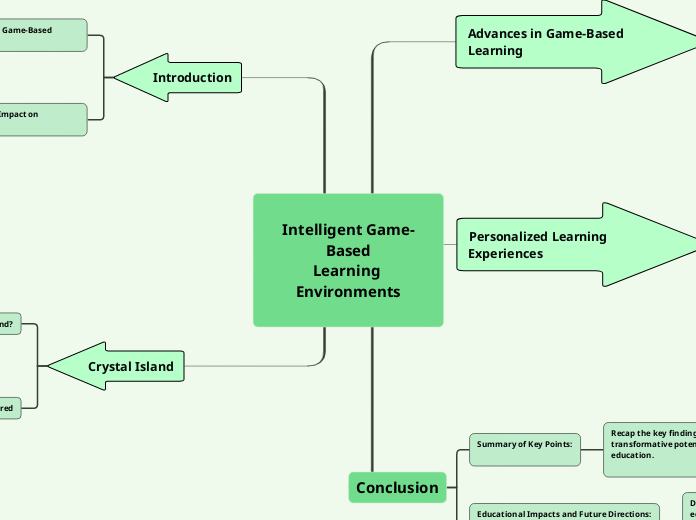Intelligent Game-Based
Learning Environments
Advances in Game-Based Learning
Theoretical Developments
James Paul Gee's work in 2007 laid the foundation for understanding the cognitive and educational benefits of incorporating game-based elements into learning environments. His theories emphasize the role of games in promoting problem-solving and critical thinking.
Creation of Environments for K–12 Subjects and Training Objectives
IGBLEs have expanded beyond entertainment, with specific applications for K–12 subjects. They offer a dynamic platform for training objectives, aligning with educational standards.
Personalized Learning Experiences
Leveraging Commercial Game Technologies and AI Techniques
IGBLEs aim to personalize learning experiences by integrating commercial game technologies and advanced AI techniques. This combination enhances adaptability to individual learning styles.
Research on Real-Time Narrative Planning and Goal Recognition
Ongoing research, inspired by D'Mello and Graesser , focuses on real-time narrative planning and goal recognition. This enables IGBLEs to dynamically adjust to students' progress and needs.
Conclusion
Summary of Key Points:
Recap the key findings, emphasizing the transformative potential of IGBLEs in education.
Educational Impacts and Future Directions:
Discuss the broader impacts of IGBLEs on education and propose potential future directions for research and development in this evolving field.
Introduction
Definition of Intelligent Game-Based Learning Environments
Intelligent Game-Based Learning Environments (IGBLEs) refer to educational settings that integrate game elements, artificial intelligence, and immersive experiences to enhance the learning process.
Brief Overview of Their Impact on Education
IGBLEs have emerged as powerful tools, combining entertainment and education. They engage students through interactive experiences, fostering motivation and deepening understanding.
Crystal Island
What is Crystal Island?
Crystal Island, an IGBLE for eighth-grade microbiology, was initially built on Valve Software's Source engine and later migrated to the Unity cross-platform game engine. It has undergone continual development over seven years.
Technical Challenges Explored
Research within Crystal Island includes narrative-centered tutorial planning, student affect recognition, goal recognition , and extensive empirical investigations
